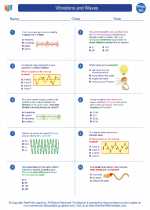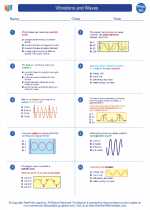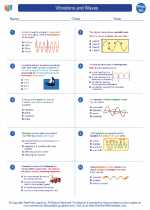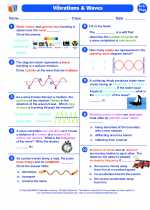Vibrations and Waves -> observation
What is Observation in Physics?
Observation in physics refers to the act of using the senses or scientific instruments to gather information about the physical world. This may involve measuring quantities such as length, time, mass, temperature, or other physical properties.
Types of Observations:
There are two main types of observations in physics:
- Qualitative Observation: This type of observation involves descriptions that do not involve numerical measurements. For example, noting the color, shape, or texture of an object.
- Quantitative Observation: This type of observation involves measurements and numerical data. For example, using a ruler to measure the length of an object, or a thermometer to measure its temperature.
Importance of Observation in Physics:
Observation is crucial in physics for several reasons:
- It provides the raw data needed for scientific investigation and experimentation.
- It allows physicists to test hypotheses and theories by comparing observations with predictions.
- It helps in the discovery of new phenomena and the formulation of scientific laws.
Examples of Observations in Physics:
Some common examples of observations in physics include:
- Measuring the time it takes for a pendulum to complete one full swing.
- Noting the behavior of objects in a vacuum chamber to study the effects of air resistance.
- Recording the position of a moving object at different time intervals to analyze its velocity and acceleration.
Improving Observational Skills:
Here are a few tips to improve your observational skills in physics:
- Practice using scientific instruments such as rulers, stopwatches, thermometers, and protractors to make precise measurements.
- Develop the habit of recording observations in a systematic and organized manner, including units of measurement and any relevant conditions.
- Compare your observations with theoretical predictions and seek to understand any discrepancies.
Conclusion:
Observation is a foundational practice in physics, enabling scientists to gather empirical data, test hypotheses, and advance our understanding of the natural world. By honing your observational skills, you can become a more proficient and insightful physicist.
[Observation] Related Worksheets and Study Guides:
.◂Physics Worksheets and Study Guides High School. Vibrations and Waves

 Worksheet/Answer key
Worksheet/Answer key
 Worksheet/Answer key
Worksheet/Answer key
 Worksheet/Answer key
Worksheet/Answer key
